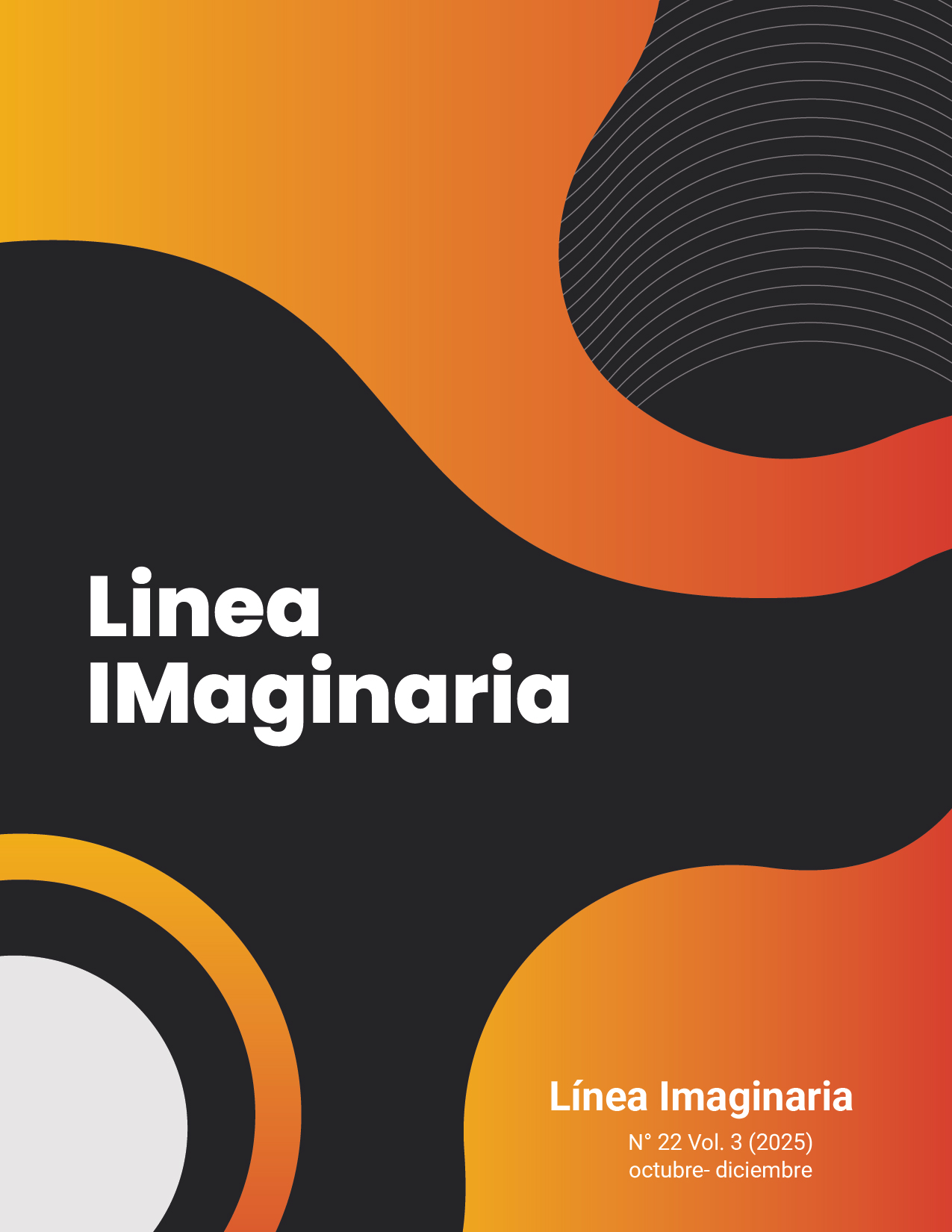EPISTEMOLOGY, CURRENTS AND IMPORTANCE WITHIN PHILOSOPHY AND RESEARCH
DOI:
https://doi.org/10.56219/lneaimaginaria.v3i22.4635Keywords:
Epistemology, current, philosophy, knowledge and researchAbstract
Epistemology, is the theory of knowledge, involves the conception of knowledge, how it is applied and its characteristics within the field of research. The idea of knowledge in question here must, at least in the first instance, be interpreted in its modest sense to also include beliefs, conjectures, and the like. The main objective of this article is to carry out a documentary review regarding epistemology, currents, paradigms, implications with philosophy and research. This is taking into account that epistemology, from a philosophical point of view, raises a range of interests that includes not only knowledge itself, but also rational belief, probability, plausibility, evidence and, also, but not least, posing and resolving questions.
Downloads
References
Adorno, T. W. (2001). Epistemología y ciencias sociales. Ediciones Catedra S.A.
Ainbinder, B. (2020). De la filosofía trascendental a la ontología fundamental: Heidegger descubre a Kant. Studia Heideggeriana, 1, 5–12. https://doi.org/10.46605/sh.vol1.2011.93 DOI: https://doi.org/10.46605/sh.vol1.2011.93
Baumann, P. (2016). Contextualismo epistémico: una defensa. Oxford: Prensa de la Universidad de Oxford. DOI: https://doi.org/10.1093/acprof:oso/9780198754312.001.0001
Carrascoso, A., & Luis, J. (2005). Fichte: La acusación de solipsismo y el preludio del paradigma intersubjetivo. Convivium. http://diposit.ub.edu/dspace/handle/2445/26182
Ferrari, J. L. (2009). El gnosticismo: esencia, origen y trayectoria. Circe de Clásicos y Moderno, 13, 222–225. http://www.scielo.org.ar/scielo.php?script=sci_arttext&pid=S1851-17242009000100017
Flores, R. et al. (2018) Gnosticismo: ¿de dónde proviene el mal? una lectura filosófico-historiográfica en Paul Ricoeur. Fuentes Humanísticas 30(57), 9–26. https://doi.org/10.24275/uam/azc/dcsh/fh/2018v30n57/flores DOI: https://doi.org/10.24275/uam/azc/dcsh/fh/2018v30n57/Flores
Flórez, J. A. (2009). EL LENGUAJE EN EL PENSAMIENTO GRIEGO. Praxis Filosófica Nueva Serie, 29, 41–60. http://www.scielo.org.co/scielo.php?script=sci_arttext&pid=S0120-46882009000200003
Gato, J. (2019). The Unity of Science, The Stanford Encyclopedia of Philosophy (Edición de otoño de 2017), EN Zalta (ed.), https://plato.stanford.edu/archives/fall2017/entries/scientific-unity/>.
Goldman, AI (1999). El conocimiento en un mundo social. Nueva York: Oxford University Press.
Gustafsson, M. (2013). La concepción de explicación de Quine y por qué no es la de Carnap. cap. 24 en un complemento de WVO Quine, G. Harman y E. Lepore (eds.), Wiley Online Library.https://onlinelibrary.wiley.com/doi/book/10.1002/9781118607992.
Jáuregui, C. (2011). Subjetividad y auto-conocimiento en la filosofía transcendental de I. Kant. Agora papeles de Filosofía, 6642. https://dspace.usc.es/xmlui/handle/10347/7380
Lenis Castaño, J. F. (2016). Ética del placer. culpa y felicidad en epicuro. Praxis Filosófica Nueva Serie, 42, 157–177. https://doi.org/10.25100/pfilosofica.v0i42.3171 DOI: https://doi.org/10.25100/pfilosofica.v0i42.3171
Llanos, H. (2020). ¿Qué es el Naturalismo en Filosofía? Instituto de Estudios Transhumanistas, 3(1). https://doi.org/10.52749/iet.v3i1.22 DOI: https://doi.org/10.52749/iet.v3i1.22
Orozco Pérez, M. (2022). Sobre el solipsismo y la transmisión del recuerdo en la experiencia de la historia. Quaderns de Filosofia, 9(1), 105. https://doi.org/10.7203/qfia.9.1.21834 DOI: https://doi.org/10.7203/qfia.9.1.21834
Patton, MQ (2002). Investigación cualitativa y métodos de evaluación (33ª ed.). Thousand Oaks: Sabio.
Ramos, C. A. (2015). Los paradigmas de la investigación científica. Avances en Psicología, 23(1), 9–17. https://doi.org/10.33539/avpsicol.2015.v23n1.167 DOI: https://doi.org/10.33539/avpsicol.2015.v23n1.167
Rodríguez Donís, M. (1995). El Epicureísmo y su repercusión histórica. Thémata Revista de Filosofía. https://idus.us.es/handle/11441/27293
Román Alcalá, R. (2005). El escepticismo antiguo: pirrón de elis y la indiferencia como terapia de la filosofía. Daimon Revista Internacional de Filosofia, (36), 33–52. https://revistas.um.es/daimon/article/view/15811
Sabugo, M. (2014). La Escuela de Fráncfort y el estupor de la razón. Rolf Wiggerhaus, 2010. La Escuela de Fráncfort (Die Frankfurter Schule. http://www.iaa.fadu.uba.ar/ojs/index.php/anales/article/view/66
Torres, S. M. (2018). Epicuro, epicúreos y el epicureísmo en Roma. Uned.Es. Retrieved July 16, 2022, from http://e-spacio.uned.es/fez/eserv/bibliuned:DptoFilosofia-FFilosofia-Libros-5025/EPICURO.pdf
Downloads
Published
How to Cite
Issue
Section
License

This work is licensed under a Creative Commons Attribution-NonCommercial-ShareAlike 4.0 International License.
La revista Línea Imaginaria conserva los derechos patrimoniales (copyright) de las obras publicadas, que favorece y permite la reutilización de los mismos bajo la licencia Creative Commons Atribución-NoComercial-CompartirIgual 4.0 , por lo cual se pueden copiar, usar, difundir, transmitir y exponer públicamente, siempre que se cite la autoría y fuente original de su publicación (revista, editorial, URL y DOI de la obra), no se usen para fines comerciales u onerosos y se mencione la existencia y especificaciones de esta licencia de uso. Si remezcla, transforma o crea a partir del material, debe distribuir su contribución bajo la misma licencia del original.













